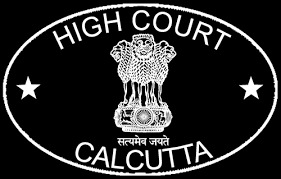Aftab H. Saikia, J.@mdashHeard Mr. S. Shyam, learned Amicus Curiae for the appellant and Mr. K.C. Mahanta, learned Public Prosecutor representing the State of Assam.
2. The conviction of the appellant u/s 302 IPC and sentence to undergo rigorous imprisonment for life and to pay a fine of Rs. 1000/-, in default of which to undergo further rigorous imprisonment for three months so handed down by the learned Additional Sessions Judge (Ad-hoc), Karimganj by his judgment dated 04.02-2002 rendered in Sessions Case No. 4/2001 while acquitting the another accused Samiruddin, have been assailed in this Criminal Appeal from Jail.
3. The prosecution case in brief is that an FIR was lodged on 20.01.1999 by one Nizam Uddin PW 1, alleging that on 19.01.1999 at about 8.00/8.30 p.m. the acquitted person Samiruddin, the father of the accused Mazir Uddin and Mazir Uddin himself assaulted his father, Siraj Uddin (hereinafter referred to as ''the deceased'') with some sharp weapon(s) when he returned back from the Balia Bazar. The first informant detected his father in unconscious condition at the place of occurrence and on raising alarm some neighbouring persons rushed there and noticed the scene. On being asked the injured narrated the incident and mentioned the name of the culprit who assaulted him. The injured then taken to the Karimganj Civil Hospital where he succumbed to his death.
4. The Police, on completion of the investigation, initiated on the basis of the FIR, submitted charge-sheet against the accused as aforesaid u/s 302/34 IPC and seized some articles including the iron rod, one plastic jerkin, one beg, two torch lights and some clothes and drew a sketch map. During the trial the prosecution examined as many as 10 witnesses whereas the defence examined two witnesses.
5. The learned Additional Sessions Judge (Adhoc), Karimganj having closely appreciated the material evidence on record and on careful examination of the Exhibits so relied upon by the prosecution passed the impugned judgment and order dated 04.02.2002 was passed in Sessions Case No. 4/2001 and found the appellant guilty of commission of offence of killing the deceased and convicted and sentenced him as already indicated above. The father of the appellant, Samiruddin was acquitted for paucity of evidence u/s 302/34 IPC.
6. On close scanning of the entire evidence on record it appears that basically the conviction was based on the dying declaration of the deceased made to PW. 5, Asad Uddin; PW. 6, Siraj Uddin; PW. 7, Abdullah and PW. 9, Jalaluddin while the Trial Court discarded the evidence of PW. 1, Nezamuddin, PW. 2, Abdul Jalil and PW. 4, Khalilur Rahman holding them to be interested witness, being the sons of the deceased. PWs. 1, 2 and 4 although they categorically deposed that their father on being asked, told them that he was assaulted by his nephew i.e. the appellant and one dark complexioned person. On the other hand PWs. 5, 6, 7 and 9 emphatically testified that the deceased Siraj Uddin on being asked by them along with other villagers told that it was Mazir Uddin and one dark complexioned boy caused injuries to him with a dao.
7. Having carefully gone through the testimony of the aforesaid witnesses, we are full agreement with the views expressed and findings arrived at by the learned trial Judge. We do not find any cogent or sufficient reason to discard the evidence of P.W. 1, 2 and 4. Since the testimony of independent witnesses namely, P.Ws. 5, 6, 7 and 9 fully corroborated the evidence of P.Ws. 1, 2 and 4 according to us, there is no hesitation to hold that the dying declaration of the deceased made before the witnesses was voluntary and it has evidentiary value.
8. In arriving at the above finding and accepting the dying declaration made by the deceased before the witnesses mentioned above, we are guided by the following judicial authorities pronounced by the Apex Court as well as by this Court.
(i)
(ii)
(iii)
(iv) Lingu Orang v. State of Assam reported in (2006) 4 GLT 95.
(v)
9. Law has been settled, as transpired from the above mentioned judicial authorities, that if the dying declaration made by the deceased is found to be true and voluntary and it inspires the full confidence of the Court in its correctness, such dying declaration can form the sole basis of conviction. In the latest case of Vikas (supra), the Apex Court quoted 10 principles governing the dying declaration in paragraph 45 that was summed up in
18. (i) There is neither rule of law nor of prudence that dying declaration cannot be acted upon without corroboration.
(ii) If the Court is satisfied that the dying declaration is true and voluntary it can base conviction on it, without corroboration.
(iii) This Court has to scrutinize the dying declaration carefully and must ensure that the declaration is not the result of tutoring, prompting or imagination. The deceased had opportunity to observe and identify the assailants and was in a fit state to make the declaration,
(iv) Where dying declaration is suspicious it should not be acted upon without corroborative evidence.
(v) Where the deceased was unconscious and could never make any dying declaration the evidence with regard to it is to be rejected.
(vi) A dying declaration which suffers from infirmity cannot form the basis of conviction.
(vii) Merely because a dying declaration does not contain the details as to the occurrence, I is not to be rejected.
(viii) Equally, merely because it is a brief statement, it is not to be discarded. On the contrary, the shortness of the statement itself guarantees truth.
(ix) Normally the Court in order to satisfy whether the deceased was in a fit mental, condition to make the dying declaration looks up to the medical opinion. But where the eyewitness has said that the deceased was in a fit and conscious state to make this dying declaration, the medical opinion cannot prevail.
(x) Where the prosecution version differs from the version as given in the dying declaration, the said declaration cannot be acted upon.
10. In view of what has been stated, discussed and observed above, we are disinclined to interfere with the impugned conviction and sentence and consequently we have no hesitation to hold that the appellant had committed murder of the deceased. Situated thus, we do not find any convincing or sufficient materials to dislodge the impugned conviction and sentence and, we are in full agreement with the views expressed and findings recorded by the learned Additional Sessions Judge (Ad-hoc) Karimganj and consequently the same stands confirmed.
11. It the result this appeal fails and stands dismissed. Send down the LCR immediately.
12. Before parting with the case at hand, we would like to put on record our appreciation to Mr. S. Shyam, the learned Amicus Curiae for rendering his valuable assistance in arriving at the aforesaid decision for which he is entitled to get his professional fees which is quantified at Rs. 5000/-. At this stage, Mr. S. Shyam, learned Amicus Curiae has fairly submitted that the professional fee so granted to him as Amicus Curiae may be deposited with the High Court Legal Aid Fund/Committee. We order accordingly.

